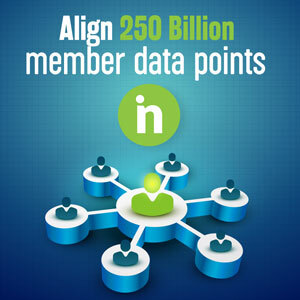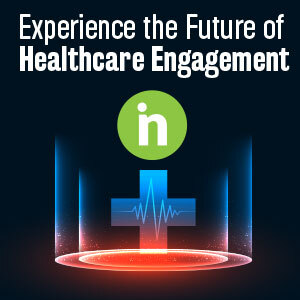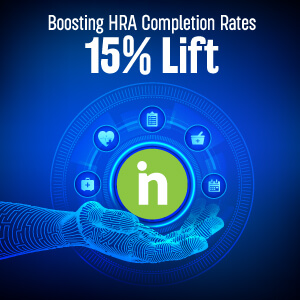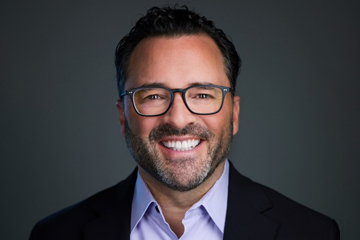Personalization Meets Health Care Privacy by Michael Wood
What You Need to Know- COVID-19 has accelerated technology adoption in the health care system.
- The pandemic has also widened the gap between consumers' health care experiences and other retail experiences.
- Artificial intelligence systems can come to patients' aid.
The thing is, there doesn’t need to be a trade-off between privacy and personalization. There can be a third way. We can create a more personalized health care system while protecting patient privacy if we leverage the right data and prioritize the business objectives that are meaningful: improving health outcomes, minimizing sick care and creating the greatest lifetime value for the people we serve.
As a health insurance professional, you can help your individual and benefits clients understand why this shift matters.

The Reimagination of Health Care Is Underway
The national landscape has never been more conducive to this kind of revolution in health care. Digital health was already taking off before the pandemic. But the past 18 months have accelerated the use of everything from consumer health apps and telemedicine to smart devices and sensors.
Not only are consumers increasingly responsive to digital tools that provide more empowerment over their care, health leaders say digital health is gaining steam within institutions. According to a recent Accenture study, 81% of health care executives said the pace of digital transformation is accelerating in their organizations.
In government, momentum is picking up as well. Recently, the Biden administration expressed its commitment to advancing digital health expansion. And in another positive sign, the Centers for Medicare and Medicaid Services announced earlier this year that it was moving up its goal to report all quality measures digitally from 2030 to 2025. While the goal may seem ambitious to some, it further demonstrates that a data-driven health care future is approaching fast.
Improving the Evaluation Process Is Key
For consumers frustrated by the slow and fragmented nature of traditional health care experiences, that future can’t arrive soon enough. Whether in-person or online, the pre-pandemic health experience already lagged behind increasingly slick consumer experiences. But now that consumers are accustomed to curbside pick-up and other coronavirus-era conveniences, the gap between health care experiences and other retail experiences seems even more pronounced.
The process for evaluating the patient experience is as clunky as the experience itself, which means the health care system can’t sufficiently or responsively adapt to patient needs. Currently, the patient experience is mainly measured through surveys, like the Consumer Assessment of Healthcare Providers and Systems (CAHPS) survey and the Health Outcomes Survey (HOS).
While these surveys may uncover areas that need improvement, they don’t shed any light on why a patient is providing a negative or positive rating. Focus groups and other strategies can also provide windows into the patient experience. But they don’t provide insights that are actionable in the moment, for example, when a patient is actually experiencing a particular issue or needs help understanding a process while it’s unfolding.
Actionable Insights in Real Time
New artificial intelligence platforms, however, offer providers and health plans information that enables them to intervene at the moments that make a difference — while protecting patient privacy. These platforms can process the full ecosystem surrounding each patient — from their personal health care experiences to their household situations to potential community challenges.
By combining traditional medical and clinical data with information related to social and behavioral factors, next-generation technology can chart the most effective next step for each person, from identifying when a patient should take a particular diagnostic test to when they’d be most receptive to a consultation with a provider.
Even more, these kinds of AI- and ML-driven technologies can measure and analyze real-time sentiments at each interaction throughout the patient journey. As a result, they can not only boost efficiency, but also help patients seamlessly navigate their experiences, flag potential challenges before they occur and respond to patient needs in real time. For example, if a patient sends out a digital SOS while in line at the pharmacy, new AI-based systems can respond instantly with reduced pricing or tier exceptions.
At every step, these platforms bake in clear parameters around privacy to improve each patient’s experience without compromising their identity or the integrity of their personal data.
And every day, they demonstrate the possibilities of a data-powered health care future. For leaders in health care, the big question isn’t binary. It isn’t if you have data or will you adjust to provide a more consumer-friendly experience. It’s how. How can you leverage the data you already have? And how are you bringing the health care experience closer to the consumer experience? Making the greatest impact down the road starts with answering those questions head-on now.
About Insightin Health
Insightin Health delivers the industry’s only single platform which provides complete personalized member engagement for each step of the health care journey. The core platform inGAGE™ combines medical, clinical, cognitive, and social determinants of health to recommend the Next Best Action (NBA) for each person. Health plans can improve quality measurements, gain higher member satisfaction, and increase member retention. The simple integration and easy to use inGAGE™ creates an effective shift towards a healthier population for health plans. For more information, visit https://insightinhealth.com/





